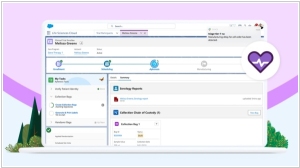Amazon Web Services vs Pivotal
August 19, 2023 | Author: Michael Stromann
26
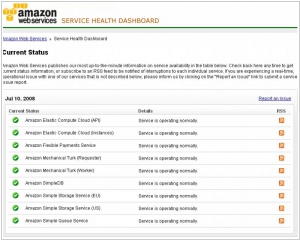
Access a reliable, on-demand infrastructure to power your applications, from hosted internal applications to SaaS offerings. Scale to meet your application demands, whether one server or a large cluster. Leverage scalable database solutions. Utilize cost-effective solutions for storing and retrieving any amount of data, any time, anywhere.
5
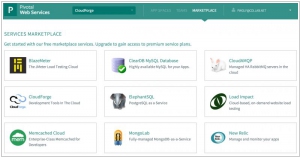
Pivotal is the leading enterprise PaaS, powered by Cloud Foundry. It delivers an always-available, turnkey experience for scaling and updating PaaS on the private cloud. Pivotal is enabling the creation of modern software applications that leverage big & fast data – on a single, cloud independent platform.
Amazon Web Services (AWS) and Pivotal are two prominent players in the cloud computing market, but they differ in their offerings and focus.
AWS, a cloud computing platform provided by Amazon, offers a wide range of cloud services and solutions. It provides infrastructure as a service (IaaS), platform as a service (PaaS), and software as a service (SaaS) offerings, allowing organizations to build, deploy, and manage applications and services in the cloud. AWS provides a comprehensive set of services, including compute, storage, databases, networking, analytics, machine learning, and more. It is known for its scalability, reliability, and vast array of services, making it a popular choice for businesses of all sizes.
Pivotal, on the other hand, is a software and services company that focuses on cloud-native application development and deployment. Pivotal Cloud Foundry (PCF) is their flagship product, which is an open-source platform for building, deploying, and running applications. Pivotal emphasizes on providing a platform for developing and running cloud-native applications, leveraging modern development practices like microservices architecture, containerization, and continuous integration/continuous deployment (CI/CD). It offers features like application lifecycle management, scalability, and automation to support modern application development.
See also: Top 10 Public Cloud Platforms
AWS, a cloud computing platform provided by Amazon, offers a wide range of cloud services and solutions. It provides infrastructure as a service (IaaS), platform as a service (PaaS), and software as a service (SaaS) offerings, allowing organizations to build, deploy, and manage applications and services in the cloud. AWS provides a comprehensive set of services, including compute, storage, databases, networking, analytics, machine learning, and more. It is known for its scalability, reliability, and vast array of services, making it a popular choice for businesses of all sizes.
Pivotal, on the other hand, is a software and services company that focuses on cloud-native application development and deployment. Pivotal Cloud Foundry (PCF) is their flagship product, which is an open-source platform for building, deploying, and running applications. Pivotal emphasizes on providing a platform for developing and running cloud-native applications, leveraging modern development practices like microservices architecture, containerization, and continuous integration/continuous deployment (CI/CD). It offers features like application lifecycle management, scalability, and automation to support modern application development.
See also: Top 10 Public Cloud Platforms
Amazon Web Services vs Pivotal in our news:
2020. AWS launches Amazon AppFlow, its new SaaS integration service
AWS has recently launched Amazon AppFlow, an integration service designed to simplify data transfer between AWS and popular SaaS applications such as Google Analytics, Marketo, Salesforce, ServiceNow, Slack, Snowflake, and Zendesk. Similar to competing services like Microsoft Azure's Power Automate, developers can configure AppFlow to trigger data transfers based on specific events, predetermined schedules, or on-demand requests. Unlike some competitors, AWS positions AppFlow primarily as a data transfer service rather than an automation workflow tool. While the data flow can be bidirectional, AWS's emphasis is on moving data from SaaS applications to other AWS services for further analysis. To facilitate this, AppFlow includes various tools for data transformation as it passes through the service.
2019. VMware completes $2.7 billion Pivotal acquisition
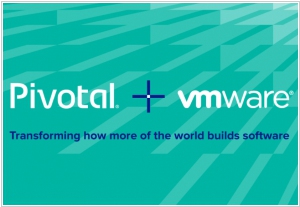
VMware has successfully completed the $2.7 billion acquisition of Pivotal, a private cloud platform. This acquisition serves as another crucial step for VMware as it strives to transition from solely a virtual machine company to a cloud-native provider capable of managing infrastructure across various environments. This addition aligns with VMware's recent acquisitions of Heptio and Bitnami, further reinforcing its strategic vision. The ultimate goal is to seamlessly integrate these developments into VMware Tanzu, a comprehensive management platform designed to unify Kubernetes containers and VMware virtual machines.
2019. AWS launches fully-managed backup service for business
Amazon's cloud platform, AWS, has introduced a new service called Backup, allowing companies to securely back up their data from various AWS services as well as their on-premises applications. For on-premises data backup, businesses can utilize the AWS Storage Gateway. This service enables users to define backup policies and retention periods according to their specific requirements. It includes options such as transferring backups to cold storage for EFS data or deleting them entirely after a specified duration. By default, the data is stored in Amazon S3 buckets. While most of the supported services already offer snapshot creation capabilities (except for EFS file systems), Backup automates this process and adds customizable rules to enhance data protection. Notably, the pricing for Backup aligns with the costs associated with using the snapshot features (except for file system backup, which incurs a per-GB charge).
2017. AWS launched browser-based IDE for cloud developers

Amazon Web Services has introduced a new browser-based Integrated Development Environment (IDE) called AWS Cloud9. While it shares similarities with other IDEs and editors like Sublime Text, AWS emphasizes its collaborative editing capabilities and deep integration into the AWS ecosystem. The IDE includes built-in support for various programming languages such as JavaScript, Python, PHP, and more. Cloud9 also provides pre-installed debugging tools. AWS positions this as the first "cloud native" IDE, although competitors may contest this claim. Regardless, Cloud9 offers seamless integration with AWS, enabling developers to create cloud environments and launch new instances directly from the tool.
2017. AWS introduced per-second billing for EC2 instances

In recent years, several alternative cloud platforms have shifted towards more flexible billing models, primarily adopting per-minute billing. However, AWS is taking it a step further by introducing per-second billing for its Linux-based EC2 instances. This new billing model applies to on-demand, reserved, and spot instances, as well as provisioned storage for EBS volumes. Furthermore, both Amazon EMR and AWS Batch are transitioning to this per-second billing structure. It is important to note that there is a minimum charge of one minute per instance, and this change does not affect Windows machines or certain Linux distributions that have their own separate hourly charges.
2017. AWS offers a virtual machine with over 4TB of memory

Amazon's AWS has introduced its largest EC2 machine yet, the x1e.32xlarge instance, boasting an impressive 4.19TB of RAM. This represents a significant upgrade from the previous largest EC2 instance, which offered just over 2TB of memory. These machines are equipped with quad-socket Intel Xeon processors operating at 2.3 GHz, up to 25 Gbps of network bandwidth, and two 1,920GB SSDs. It is evident that only a select few applications require this level of memory capacity. Consequently, these instances have obtained certification for running SAP's HANA in-memory database and its associated tools, with SAP offering direct support for deploying these applications on these instances. It's worth mentioning that Microsoft Azure's largest memory-optimized machine currently reaches just over 2TB of RAM, while Google's maximum memory capacity caps at 416GB.
2014. AWS now supports Docker containers
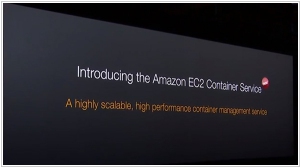
Amazon has announced the preview availability of EC2 Container Services, a new service dedicated to managing Docker containers and enhancing the support for hybrid cloud in Amazon Web Services. This offering brings forth a range of benefits, including streamlined development management, seamless portability across different environments, reduced deployment risks, smoother maintenance and management of application components, and comprehensive interoperability. It is important to note that AWS is not the first cloud provider to provide support for Docker's open-source engine. Google has recently expanded its support for Docker containers through the introduction of its Google Container Engine, which is powered by its own Kubernetes and was announced just last week during the Google Cloud Platform Live event. Furthermore, Microsoft had previously announced its support for Kubernetes in managing Docker containers in Azure back in August.
2014. Pivotal brings its cloud services to Mobile

Pivotal, the enterprise cloud platform, is introducing new services specifically tailored for mobile development, which complement the company's previously announced data services. The newly launched CF Mobile Service encompasses push notifications, an API gateway, and data-sync services. This service also provides IT departments with the ability to establish distinct policies and service level agreements to ensure that data remains within the enterprise's control. Pivotal CF is built upon the Cloud Foundry PaaS, which is an open-source platform. As a result, Pivotal CF supports a wide array of open-source tools, including various databases such as MongoDB, Riak, Apache Cassandra, and the Neo4j graph database, reflecting its rich heritage.
2014. GE becomes Big Data provider
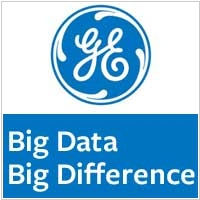
In the previous year, General Electric (GE) embarked on a significant investment of $105 million in the Big Data platform known as Pivotal. Currently, GE is actively implementing the powerful big data analytics capabilities provided by Pivotal, both internally and for customers who purchase its jet engines. To establish its analytics infrastructure, GE utilized Pivotal's Big Data Suite in conjunction with EMC's appliances, initially focusing on its aviation group. Within a span of 90 days, GE successfully established this capability and expanded its usage to 25 airline customers, granting them access to extensive data and analytics resources. Through the aggregation of data from approximately 15,000 flights, GE acquired 14 GB of information per flight, which could be efficiently analyzed within a reasonable timeframe. By employing traditional methods, processing the required data to identify a maintenance issue would have taken approximately 30 days. However, with the integration of Pivotal's technology, GE can now conduct substantial analytical operations in just 20 minutes.
2014. Pivotal adds new enterprise features to its PaaS platform
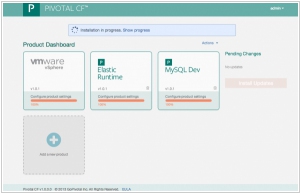
Pivotal, the provider of a Cloud Foundry-based PaaS platform, is enhancing its features to cater to the needs of large corporations aiming to develop and deploy their own applications across multiple clouds. As an illustration, Pivotal CF users now have the capability to deploy applications in dual availability zones across clouds, thereby increasing redundancy. Additionally, the dashboards have been revamped to display real-time application status. Pivotal CF is an integral part of Pivotal's broader strategy, which encompasses various technologies contributed by its parent companies, EMC and VMware. These technologies encompass EMC's Greenplum big data analytics, Pivotal Labs' agile development, Cetas analytics, VMware's vFabric, and Cloud Foundry.




